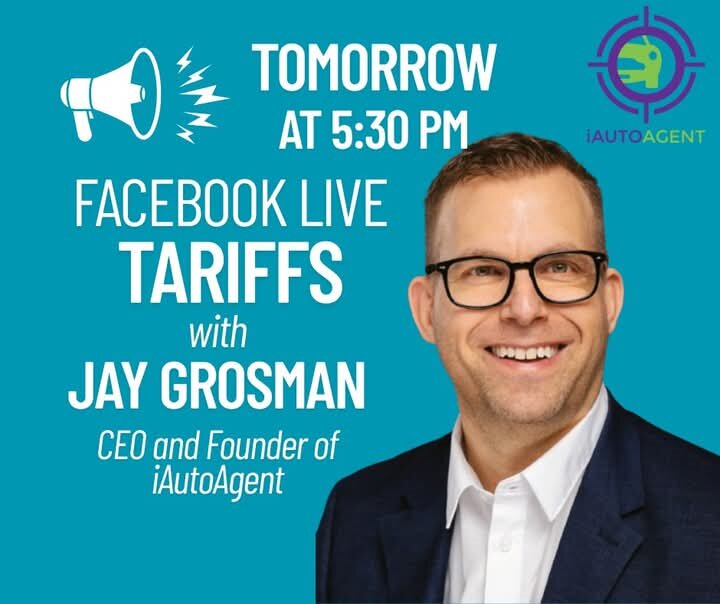
Car Prices Are Spiking. Repairs Are Getting More Expensive. And It’s Only Just Begun.
A new 25% tariff on imported vehicles and auto parts took effect on April 3, and it’s already affecting every corner of the automotive market. Prices are up. Inventories are shifting. Repair costs are rising. At iAutoAgent, we’re tracking this closely to help you make informed decisions—whether you’re buying, selling, or maintaining your current vehicle. Jay Grosman, CEO of iAutoAgent, appeared on Fox 2 News on March 26 to break down the real-world impact of these tariffs. Watch the full interview here: https://youtu.be/e0Ue0q__vFU?feature=shared.
New Car Buyers: Expect Higher Prices, Even on Current Inventory
Dealers have started adding markup stickers to new vehicles already on their lots. Even cars shipped before the tariff are being repriced in anticipation of supply disruptions and rising costs.
Many "domestic" vehicles are also affected—because they rely heavily on imported components.
Key takeaway: If you’re planning to buy new, do it sooner than later.
Used Cars: Prices Are Already Moving
-
Used prices increased before the tariffs took effect. The market reacted to the announcement.
-
As new car prices rise, more buyers will shift to used vehicles—tightening inventory and pushing prices higher.
-
We expect conditions similar to the 2020–2022 market: high demand, low availability, and upward pricing pressure.
If you’re a private seller, this is an opportunity. Demand for clean, well-maintained vehicles—especially imports—is about to surge.
Repair Costs: Rising Across the Board
Tariffs don’t just affect new purchases—they hit the repair economy too.
-
Most replacement parts are imported. Tariff-driven price hikes will flow into repair costs.
-
Shops will pass those costs on to consumers.
-
Expect delays on specialty parts and increases in labor rates as the backlog builds.
If you're planning to hold onto your vehicle, this is a key moment to reconsider your protection strategy.
Why Vehicle Service Contracts Make Sense Right Now
A vehicle service contract acts as a price lock on future repairs:
-
It covers major repair costs regardless of rising parts or labor prices.
-
Contract providers are already reviewing their pricing models in response to the tariffs.
-
If you wait, you’ll likely pay more for the same coverage—or miss out entirely.
If your vehicle is in good mechanical condition, we recommend reviewing your coverage options now.
What You Should Do Next
-
Buyers: Move quickly before pricing resets industry-wide.
-
Sellers: List now while demand is ramping up.
-
Owners: Review your vehicle’s warranty or service contract coverage before repair costs climb.
iAutoAgent will continue monitoring the market closely and sharing updates. Our next blog will break down what this means for specific brands and segments.
Watch Now






